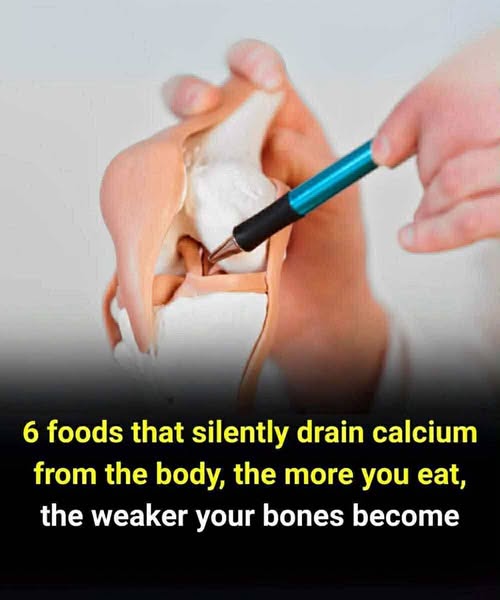Calcium isn’t just about strong bones — it’s essential for heart function, muscle contractions, nerve signaling, and blood clotting. In fact, the Cleveland Clinic reports that calcium is the most abundant mineral in the human body, with over 99% stored in your bones and teeth, giving them strength and structure.
The remaining 1% — though small in quantity — plays a vital role in daily bodily functions.
Since your body can’t produce calcium on its own, you must get it from your diet or supplements.
But here’s the catch:
👉 **Even if you eat calcium-rich foods, certain everyday foods can drain calcium from your body, silently weakening your bones over time.
The more you consume these foods, the harder it is for your body to maintain strong, resilient bones — increasing your risk of osteoporosis, fractures, and joint pain.
Let’s uncover the 6 hidden calcium thieves hiding in your pantry — and what to do instead.
❌ 1. Soda (Especially Colas) – The Stealthy Bone Buster
Why it’s dangerous:
Most colas contain phosphoric acid — a chemical that disrupts the calcium-phosphorus balance in your body.
When phosphorus levels rise too high:
Your body pulls calcium from your bones to restore balance
Calcium excretion in urine increases
Bone density drops over time
Add to that the high sugar content, which promotes chronic inflammation — another enemy of bone health.
📊 The proof:
Studies show that women who drink cola daily have lower bone mineral density than those who don’t — even if they consume the same amount of calcium.
✅ Better choice:
Swap soda for:
Herbal teas (like chamomile or rooibos)
Sparkling water with lemon or lime
Homemade fruit-infused water
❌ 2. Salt (Sodium) – The Silent Calcium Leacher
Why it’s dangerous:
Every gram of sodium you consume forces your kidneys to excrete 10–40 mg of calcium in your urine.
High-sodium diets = massive calcium loss over time.
And it’s not just the salt shaker — processed foods are the real culprits:
Fast food
Canned soups
Frozen meals
Chips and snacks
Deli meats
Over time, this calcium drain weakens bones and increases the risk of osteoporosis.
